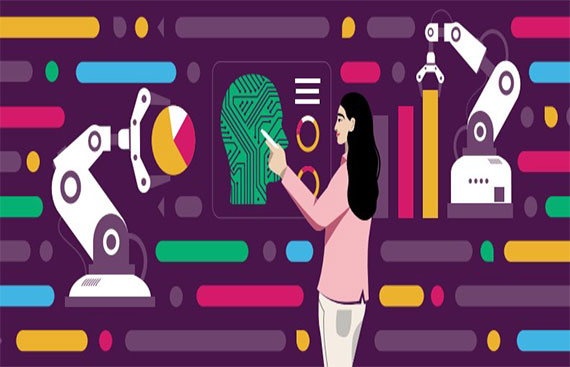New Slack Research Reveals That 75% Of Indian Desk Workers Are Adopting AI And Automation To Drive Productivity

Slack today released findings from their latest State of Work report, which found that Indian organisations are seeking innovative and efficient methods to enhance employee productivity. The report, based on a survey of more than 2000 Indian desk workers, uncovered that AI and automation capabilities have the potential to streamline and optimise repetitive, time-consuming tasks, allowing Indian desk workers to focus on higher-value, strategic work. The findings constitute part of a global Slack survey of more than 18,000 workers across nine countries.
The report uncovers three trends defining modern work and driving employee productivity today:
- Adoption of AI & automation are revolutionising organisations by increasing productivity.
- Office work and design are being redefined in the age of hybrid work.
- Employee engagement and talent development also directly impact productivity.
India is the leader in AI adoption globally
Organisations that have embraced AI tools and automation are likely to experience enhanced productivity within their organisations:
- Those in India who have adopted AI in their work are 53% more likely to report significantly higher levels of productivity than those who have not.
- Most (77%) employees surveyed globally say that being able to automate routine tasks, such as getting expense report approvals, would improve their productivity.
- Globally, those who use automation at work estimate saving an average of 3.6 hours a week – this equates to at minimum one working month a year* given back to each employee to focus on meaningful work.
Beyond AI and automation, Indian desk workers see value in new ways of working
In the age of hybrid work, employees in India seek flexibility and a setting that promotes inclusivity and collabo- ration. A workplace setting that empowers them to strike a better work-life balance is in high demand.
- Employees surveyed in India say that flexible work schedules are one of the best ways for their employer to support their productivity.
- Employees who were surveyed globally say that a flexible location (36%), unique workplace benefits, such as providing lunch or recreational activities (32%), also enhance productivity.
However, only a few executives are using modern strategies to improve how employees work with each other – wherever they are:
- When surveyed globally, only 19% encourage asynchronous work, for example when sharing status updates.
- Over a third (35%) of global employees cite spending too much time in meetings as a top productivity challenge.
- Globally, employees say that 43% of their meetings could be eliminated with no real adverse consequences.
Productivity and wellness are not mutually exclusive — to deliver results, organisations need to focus on employee well-being
Job satisfaction, engagement, and mental wellness are also top factors that contribute to productivity, so it is crucial for leaders to consider these areas as part of how they redefine and drive productivity:
- The majority (94%) of employees in India say feeling happy and engaged at work is a key driver of their productivity.
- Indian desk workers who feel more productive are 13% more likely to be able to focus.
- Globally, employers need to prioritise wellness, as 53% of employees say that they feel pressure to respond to messages quickly, even if they’re sent after standard working hours.
Managers play a pivotal role in shaping work culture and must be equipped with the necessary skills, tools, and team wellness support to drive efficiency and productivity. However, they face challenges in creating a healthy and productive environment:
- Managers in India state that the top barrier to productivity faced by them is helping their teams have a good work-life balance.
- The top barrier to productivity faced by knowledge workers in India is spending too much time in meetings and email.
- When surveyed globally, 43% of managers struggle to help their team stay motivated.
Organisations must prioritise addressing these challenges, removing barriers that impede productivity in the face of growing business demands. Employees are eager to streamline work processes and boost productivity, but many need help finding the best approach.
Derek Laney, Slack Technology Evangelist, APAC, Salesforce comments:
“The findings in the State of Work report reaffirm the transformative impact of AI and automation on employee productivity. The Indian market is enthusiastic about adopting new technologies to work smarter, more efficiently, and pleasantly. Through the strategic utilisation of intelligent tools and the optimisation of processes, we can create an environment where employees thrive and make meaningful contributions. By equipping managers and employees with the right tools to work more efficiently, organisations have the potential to drive productivity and unleash the true potential of desk workers in India.”
Read More News :
Swiggy now uses generative AI to boost user, restaurant experiences
